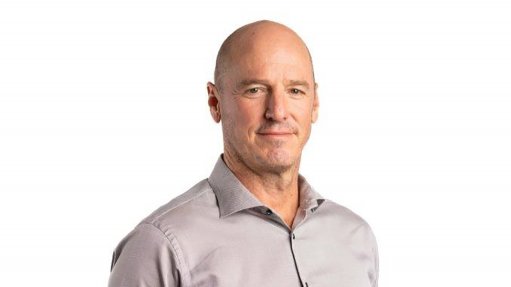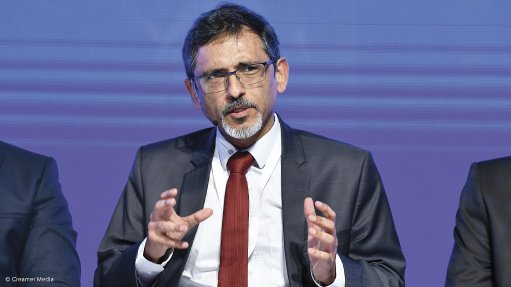Up on a soapbox
In 1958, comedian Peter Sellers recorded a parody of a political speech in which the politician said pretty much nothing: “My friends, in the light of present-day developments, let me say right away that I do not regard existing conditions lightly. On the contrary, I have always regarded them as subjects of the gravest responsibility, and shall ever continue to do so.
“Indeed, I will even go further and state, quite categorically, that I’m more than sensible of the definition of the precise issues which are, at this very moment, concerning us all. We must build, but we must build surely!
“Let me say just this – if any part of what I am saying is challenged, then I am more than ready to meet such a challenge. For I’ve no doubt whatsoever that whatever I may have said in the past, or what I am saying now is, as to the state of the case, the exact, literal and absolute truth.”
As you can see, a long way of saying nothing. Now, not so long ago, I criticised the Council for Scientific and Industrial Research (CSIR) for undertaking noise-impact assess- ments for wind farms and I criticised the council’s environmental-impact assessment document. The CSIR wrote back and responded, which was what one should do.
But now I am to take on bigger fish than the CSIR . . . in short, the World Wildlife Fund (WWF). It says its “mission is to conserve nature and reduce the most pressing threats to the diversity of life on earth”. It also wants to “strengthen local communities’ ability to conserve the natural resources they depend on” and “transform markets and policies to reduce the impact of the production and consumption of commodities”. Okay? Hold the thought. The other day, an invite was issued to some engineer acquaintances of mine to attend an energy ‘caucus’. This was convened by EGI, which is (the organi- sation says) the Electricity Governance Initiative, a global network of civil society organisations dedicated to promoting transparent, inclusive and accountable decision-making in the electricity sector.
At the caucus, one speaker, Richard Worthington, was from the WWF and, I am informed, he made the following points: there is a need for free electricity for everyone, no burning of coal in any homes or households, we must develop renewables to supply the needs, we must put a cap on our energy demands, there must be zero tolerance for coal (generation?) and there must be no fracking anywhere in the country. He endorsed a carbon tax to sort out the future.
Well, Worthington is entitled to his point of view. But is it his view or that of the WWF? He is recorded as being the WWF climate change programme manager and, surely, he was at this ‘caucus’ in this capacity.
So, how does the WWF expect that everybody will get ‘free electricity’? Even if we never pay for it directly, somebody has to. Power lines do not maintain themselves. All fuel, even wind and solar, has a cost.
Develop renewables to supply needs? What? In South Africa, 36 000 MW of renewable power? From what, exactly? From where, on a still night?
Put a cap on energy demands? How? Eliminate population growth and industrial growth?
A carbon tax to sort out the future? Hello? Hello?
I think that both the WWF, the EGI and similar orga- nisations suffer the same problem as displayed in Sellers’ speech – they know nothing about the subject of energy conversion or distribution but insist on talking about it. But it is a characteristic of the green movement: unrealistic suggestions and beliefs which claim the moral high ground, being financially supported by charities and government movements, while having no effect on any real problem.
I will give this to the WWF – it has supported animal rights and stopped animal slaughter, and good on them. Beyond knowing that polar bears do not eat penguins, I do not know much about wildlife. I am really glad the WWF is out there, helping wildlife in whatever form. But it stuns me that now it seems to want to be involved in setting energy policy for a government – surely, its efforts and money can be better spent doing things that relate to wildlife.
Comments
Press Office
Announcements
What's On
Subscribe to improve your user experience...
Option 1 (equivalent of R125 a month):
Receive a weekly copy of Creamer Media's Engineering News & Mining Weekly magazine
(print copy for those in South Africa and e-magazine for those outside of South Africa)
Receive daily email newsletters
Access to full search results
Access archive of magazine back copies
Access to Projects in Progress
Access to ONE Research Report of your choice in PDF format
Option 2 (equivalent of R375 a month):
All benefits from Option 1
PLUS
Access to Creamer Media's Research Channel Africa for ALL Research Reports, in PDF format, on various industrial and mining sectors
including Electricity; Water; Energy Transition; Hydrogen; Roads, Rail and Ports; Coal; Gold; Platinum; Battery Metals; etc.
Already a subscriber?
Forgotten your password?
Receive weekly copy of Creamer Media's Engineering News & Mining Weekly magazine (print copy for those in South Africa and e-magazine for those outside of South Africa)
➕
Recieve daily email newsletters
➕
Access to full search results
➕
Access archive of magazine back copies
➕
Access to Projects in Progress
➕
Access to ONE Research Report of your choice in PDF format
RESEARCH CHANNEL AFRICA
R4500 (equivalent of R375 a month)
SUBSCRIBEAll benefits from Option 1
➕
Access to Creamer Media's Research Channel Africa for ALL Research Reports on various industrial and mining sectors, in PDF format, including on:
Electricity
➕
Water
➕
Energy Transition
➕
Hydrogen
➕
Roads, Rail and Ports
➕
Coal
➕
Gold
➕
Platinum
➕
Battery Metals
➕
etc.
Receive all benefits from Option 1 or Option 2 delivered to numerous people at your company
➕
Multiple User names and Passwords for simultaneous log-ins
➕
Intranet integration access to all in your organisation


















